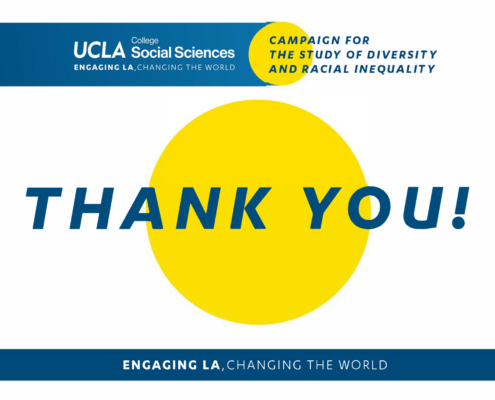Posts

UCLA LATINO POLICY AND POLITICS INSTITUTE ANNOUNCES INAUGURAL LATINO APPLIED POLICY RESEARCH AWARDS
By Jose Garcia, Policy Fellow at the UCLA Latino Policy and…

UCLA Division of Social Sciences Exceeds Campaign Goal for Dean’s Fund for the Study of Diversity and Racial Inequality
In light of the reawakened reckoning on racial justice issues…

